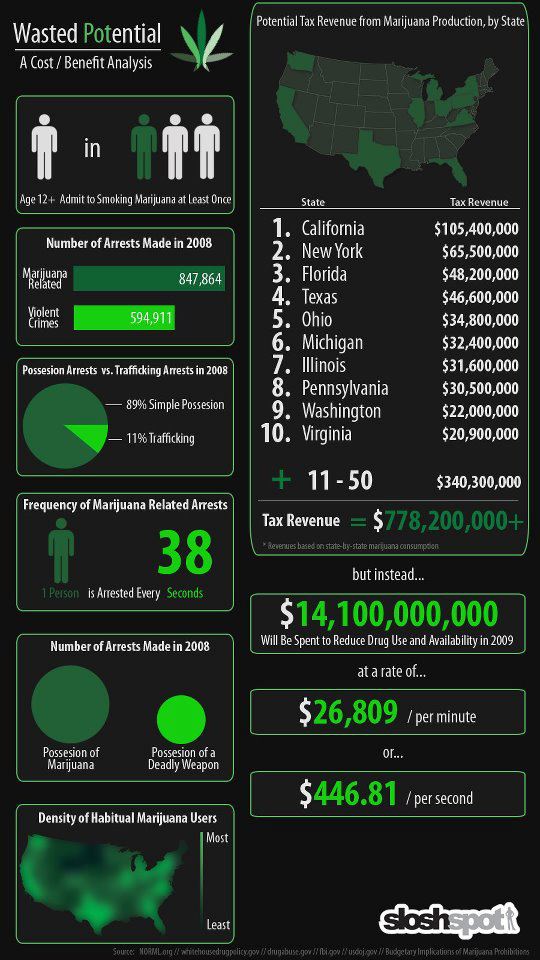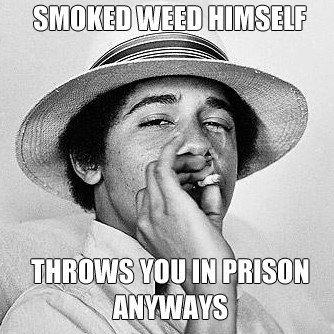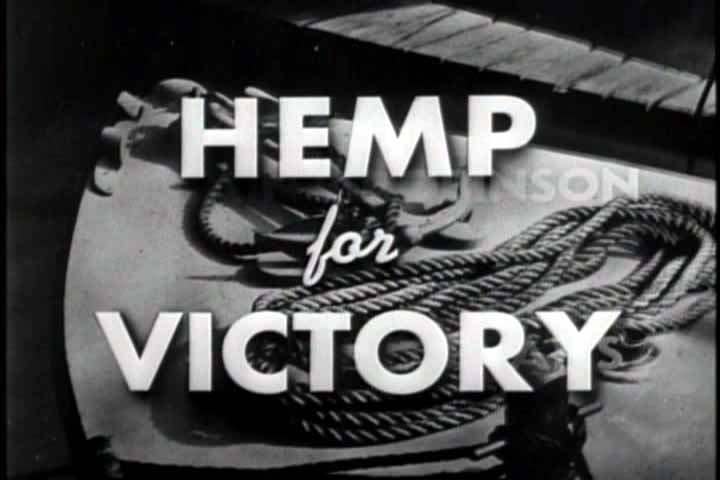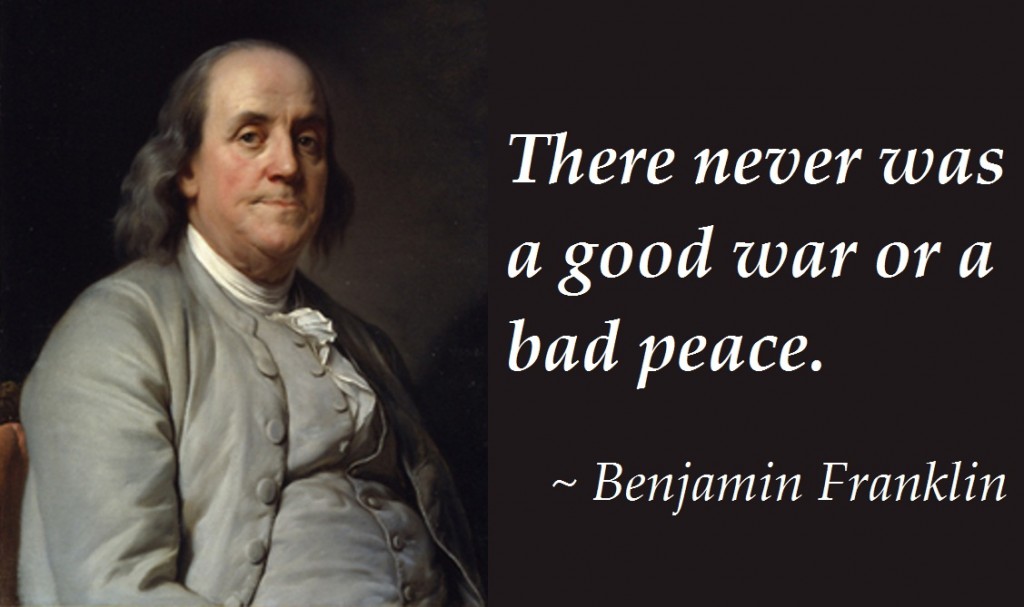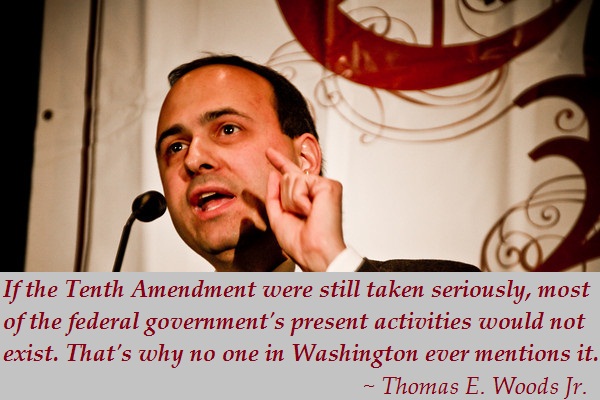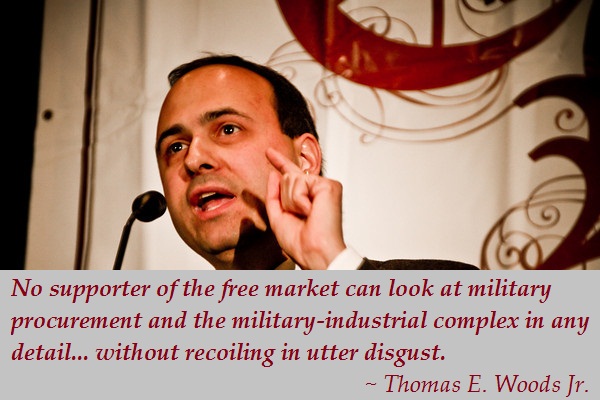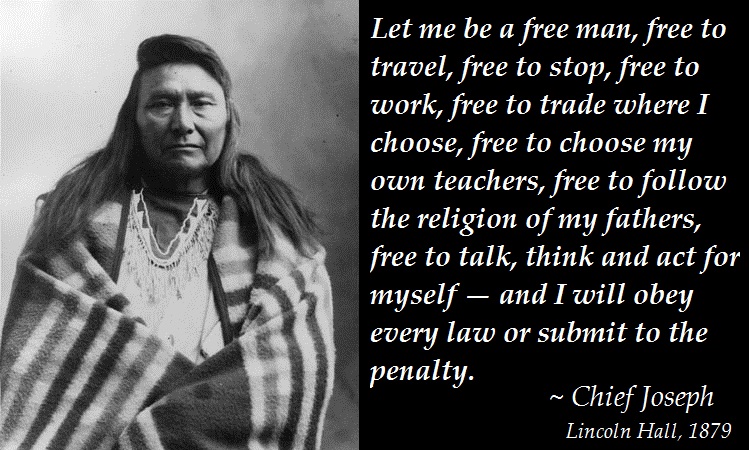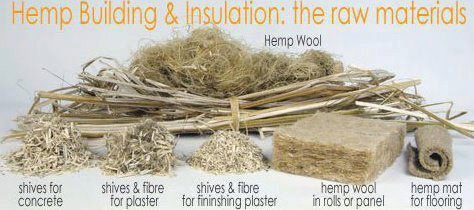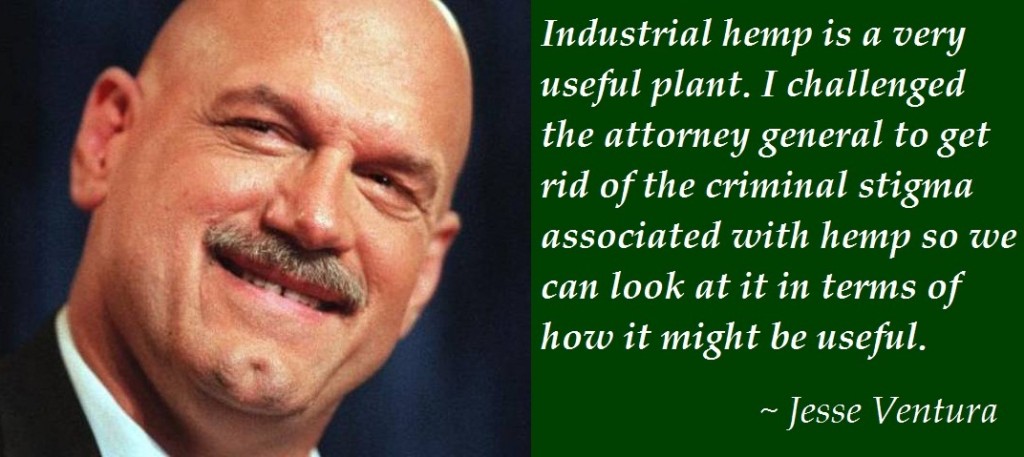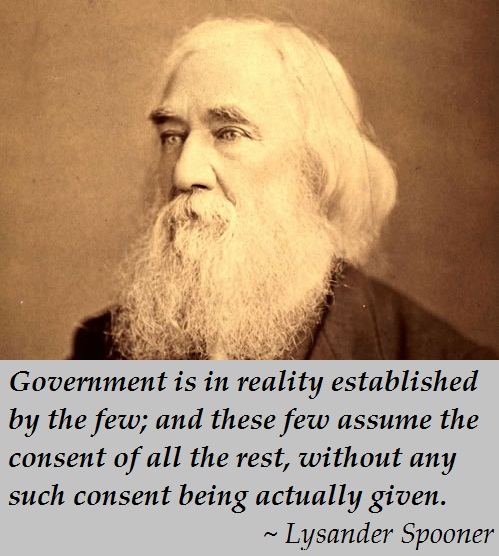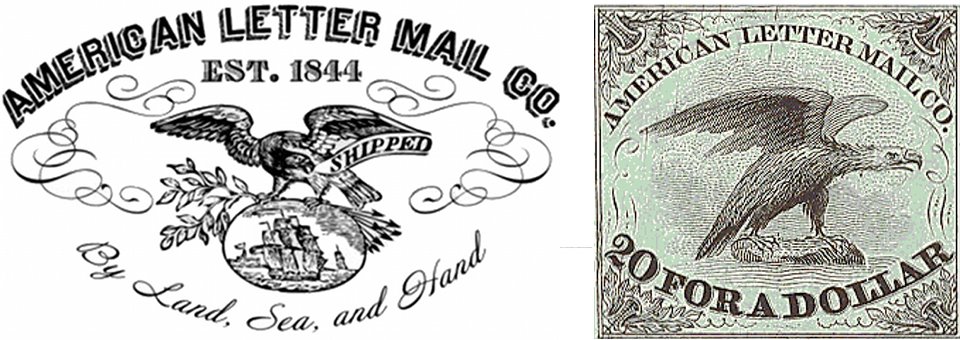During his stint as Governor of Minnesota, Jesse Ventura undertook efforts to promote and educate people about hemp. Ventura made an appeal for hemp to President Bill Clinton in this 1999 letter.
Dear President Clinton:
It is no secret that farmers in Minnesota and around the country are looking for creative answers to the farm crisis. Prices for corn, soybeans and other commodities continue to wallow far below break-even levels, and for an alarming number of producers, the financial crunch is devastating. Minnesota farmers pride themselves on their self-sufficiency, and as days go by, more and more of them are looking for new ways to attack the price problem. For many, the idea of growing alternative crops is attractive.
The 1999 Minnesota Legislature passed a law directing the Governor, in consultation with the Commissioners of Agriculture and Economic Development, to prepare an application to the federal government to authorize growing experimental and demonstration plots of industrial hemp. After researching the federal permitting process, we learned that individual producers must apply on their own, and that a state cannot apply for a general permit.
In the next few weeks, my administration will hold a public meeting to talk with interested farmer about the state and federal permitting process required to grow industrial hemp. We are also exploring opportunities to streamline the permitting process. The hope is that experimental plots will one day lead to an exciting economic opportunity for Minnesota farmers to produce this potential alternative crop that once thrived around the world.
Industrial hemp is a hardy crop that was once grown around the world for a wide variety of uses. In America, it was grown during World War II for fiber. Today, industrial hemp products are being sold across the nation, yet few states have actually passed legislation allowing the crop to be raised.
Industrial hemp has a number of uses, ranging from construction materials and cosmetics to papers and textiles. According to a study completed by North Dakota State University’s Institute for Natural Resources and Economic Development, retailer sold $75 million in hemp products in 1997. This figure is estimated to grow to $250 million by next year. Clearly, additional research and development needs to be done with regard to marketing and processing opportunities, but I believe that industrial hemp can become a lucrative alternative for Minnesota farmers.
Our neighbors in Canada are ahead of us in the effort to establish industrial hemp as an alternative crop for farmers. They have already given their producers the opportunity to grow industrial hemp, and I understand their process is working well. Given the success we have seen in Canada and the continuing economic challenges Minnesota farmers face, I am anxious to move forward on the opportunity to grow experimental and demonstration plots of industrial hemp. I look forward to the day when our producers can grow this crop as a profitable alternative to corn, soybeans and wheat. I anticipate that a crop of industrial hemp from Minnesota could be used to fulfill many of the 25,000 documented uses for this crop.
I realize the production of industrial hemp raises concerns in the area of public safety. I have asked the Commissioner of the Minnesota Department of Public Safety to work with the DEA to address those concerns directly. However, as we address those concerns we must be careful not to over-regulate or make industrial hemp production prohibitively cost for farmers – otherwise all our efforts could be wasted.
I look forward to working with DEA and the Minnesota Board of Pharmacy, which regulates the use of controlled substances, to ensure that our producers can grow experimental plots safely and without unnecessarily burdensome regulations. Our producers are looking for economic alternatives, and government should not stand in their way. I hope that by working together in a fair and rational manner, we can create a viable opportunity for industrial hemp production in Minnesota.
Sincerely,
Jesse Ventura
Governor

